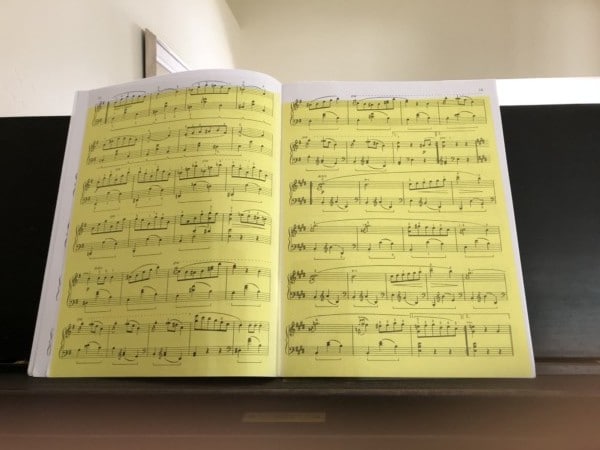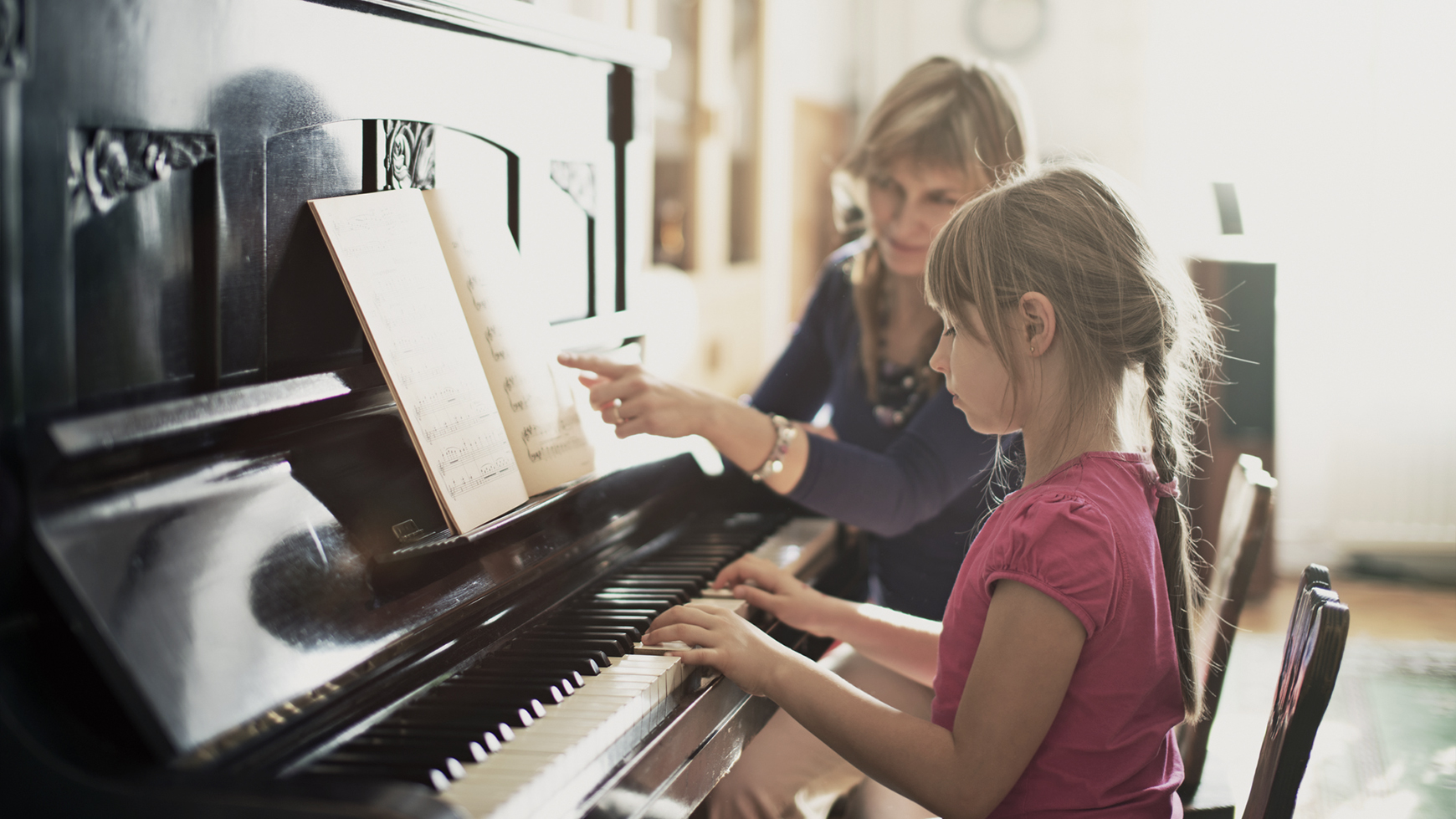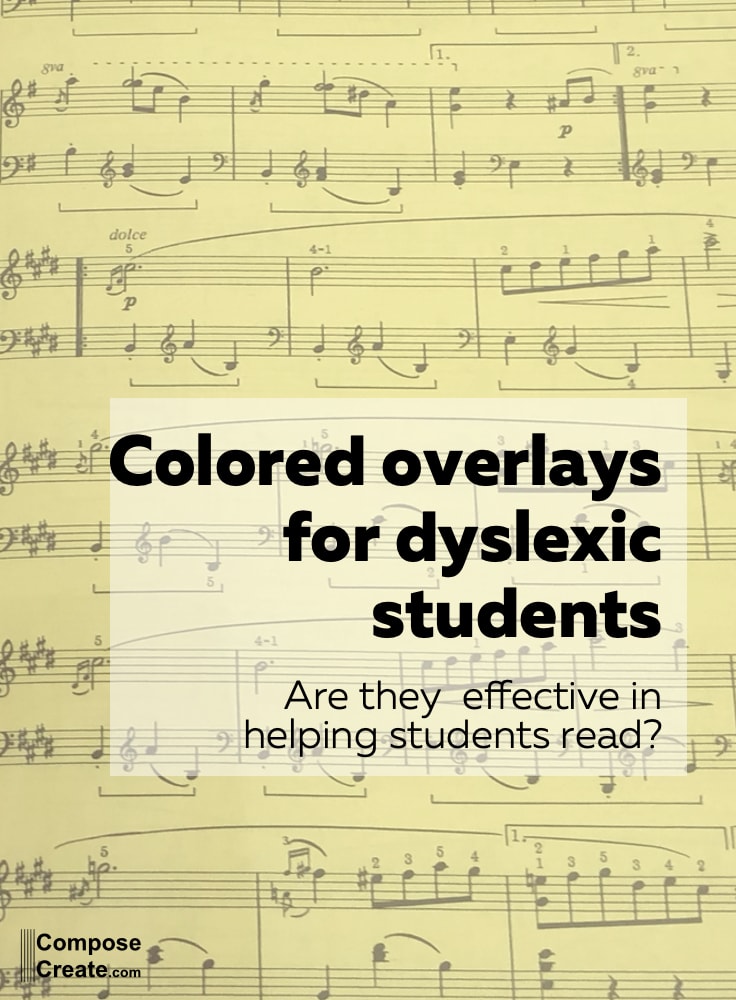Playing the piano can support cognitive development and may assist individuals with dyslexia. Music training could enhance language and reading skills, which are challenging for dyslexics.
Engaging in piano lessons has been suggested to offer various cognitive benefits that extend beyond the realm of music, potentially aiding those with dyslexia—a learning disorder characterized by difficulties with accurate and/or fluent word recognition and by poor spelling and decoding abilities.
Studies have shown that music education, specifically learning to play an instrument like the piano, can improve auditory discrimination and memory, skills that are directly related to language and reading. For people with dyslexia, the piano’s multisensory learning process—combining visual, auditory, and kinesthetic elements—can reinforce neural pathways used in reading. This synergy between music training and literacy skills underscores the potential for piano playing to serve as a complementary educational tool for those managing dyslexia.
The Link Between Music And Dyslexia
The Link Between Music and Dyslexia delves into the fascinating world where melodies and rhythm intertwine with language processing. This relationship may hold the key to untangling the complexities dyslexic individuals face.
Decoding The Dyslexic Brain
The dyslexic brain, with its unique wiring, processes language differently. Understanding this framework is crucial to exploring how music could aid dyslexic individuals. Studies suggest musical training might enhance the brain’s ability to decode phonetic sounds and patterns – essential skills for reading proficiency.
Harmony And The Mind: A Symphony For Learning
Harmony and rhythm in music potentially support and improve cognitive functions related to learning and memory. The structured and repetitive nature of musical notes might facilitate better reading fluency and accuracy in dyslexic learners. Let’s look at some compelling ways music intertwines with dyslexia:
- Enhanced Phonological Awareness: Music education could strengthen the skills needed to identify and manipulate sounds in speech.
- Improved Memory and Attention: Learning an instrument demands focus and might enhance auditory discrimination.
- Rhythm and Reading: The temporal patterns in music could mirror the cadence needed for sound reading fluency.

Credit: composecreate.com
Evidence Of Piano’s Impact On Dyslexia
Exploring the melody of music and its effects reveals intriguing intersections with language skills. For individuals with dyslexia, the rhythm and structure of piano may pave new pathways for learning and cognition.
Investigations into music therapy have unveiled possible benefits for dyslexia sufferers. The piano, specifically, may hold the key to enhancing reading and writing abilities.
Case Studies And Research Findings
Research shines a light on music’s role in improving dyslexic symptoms. Studies suggest playing piano strengthens the same cognitive areas affected by dyslexia.
- Increased phonological awareness: Piano training is linked with better sound discrimination.
- Improved memory: Learning music enhances auditory memory crucial for language.
- Enhanced multisensory skills: Piano learning involves using sight, sound, and touch together.
A table of research summaries supports this claim:
| Study | Group | Outcome |
|---|---|---|
| Study A | Children with dyslexia | Improved reading speed post piano lessons |
| Study B | Adult dyslexics | Enhanced word recognition with musical training |
Testimonies From Experts And Educators
Credible voices in education and music therapy endorse the piano’s merits for dyslexic learners.
“Music literacy and language literacy are partners in the brain.” – Dr. Nina Kraus, Neuroscientist
“Piano instruction can significantly enhance a dyslexic child’s cognitive abilities.” – Maria, Special Education Teacher
Experts agree on the transformative role of piano in the lives of those with dyslexia.
- Instruments stimulate neural networks like those used in reading.
- Piano playing encourages resilience and focus, key attributes for dyslexic learners.
- Sequential finger movements on keys promote fine motor skills and pattern recognition.
Mechanisms Of Influence
Many parents and educators wonder about the effects of music on learning. The piano, for instance, might be more than just an instrument for creativity. It could aid children with dyslexia. Let’s explore the mechanisms of influence music has on this learning difficulty.
Understanding how piano playing can support children with dyslexia requires a look at cognitive and language processing. Different parts of music training, like rhythm and melody, stimulate the brain in unique ways.
Cognitive Enhancements Through Music
- Memory: Learning music improves memory, even outside musical contexts.
- Attention: Students who play piano learn to concentrate better.
- Pattern recognition: Music involves spotting patterns, a skill crucial in reading and writing.
Bold face facts: These enhancements are not just artsy bonuses; they’re core strengths that help students with dyslexia.
Rhythmic Patterns And Language Processing
The study of rhythm in music overlaps with how we process speech. This overlap means learning rhythm on the piano can help with language.
- Rhythm and phonics: By practicing rhythmic music, students may improve their phonological awareness.
- Timing in speech: Piano students get better at detecting timing in speech, aiding reading fluency.
Key takeaway: Regular piano practice sets the stage for more effective language processing, potentially easing some dyslexic challenges.
Pedagogical Approaches
Engaging in music, specifically the piano, can be magical for the mind. For children with dyslexia, this magic has educational benefits. Teachers and therapists have discovered unique ways to blend piano into learning. This way, kids tackle dyslexia challenges creatively. Let’s dive into some of these innovative approaches.
Incorporating Piano Into Learning Strategies
Piano lessons might not seem like a typical classroom activity. Yet, they hold the key to unlocking literacy skills. Dyslexic children often find visual and auditory stimulation through music. It boosts their learning. Playing the piano can improve memory, attention, and even reading abilities.
- Rhythmic training aids in processing sounds and language.
- Reading music sharpens brains to decode symbols, similar to reading text.
- Hand-eye coordination developed at the keyboard enhances motor skills.
Curriculum Innovations And Music Therapy
Music therapy, interwoven with school curriculums, brings exciting results. It’s not just a fun activity but a strategic tool for development. Experts tailor piano sessions to meet educational goals for dyslexic students. They focus on areas such as:
| Area | Focus |
|---|---|
| Language Skills | Matching tones to words enhances phonological awareness. |
| Cognitive Abilities | Music patterns boost problem-solving and sequencing skills. |
| Confidence | Mastering a piece on the piano builds self-esteem. |
These innovative teaching techniques make waves in special ed. They help kids with dyslexia experience success in school and beyond.
Practical Considerations
When exploring the benefits of piano for individuals with dyslexia, practical considerations are crucial. You’ll want to look at how the choice of instrument and lessons can align with learning needs. Balancing these with academic achievements is also key.
Choosing The Right Instrument And Lessons
Finding a suitable piano is the first step. Consider size and ease of use. Digital pianos with lighted keys can guide beginners and be less daunting. An acoustic piano offers a traditional feel but requires regular tuning.
For lessons, seek out experienced teachers familiar with dyslexia. They should use multisensory methods that engage hearing, vision, and touch. Structured lessons with clear goals help track progress. Look for teachers who can adapt materials and pace to fit individual learning styles.
Balancing Music Education With Academic Goals
Setting achievable goals is important. Music education should complement, not compete with, schoolwork. A weekly practice schedule that does not overwhelm is ideal.
Time management skills are essential. Consider short, daily practice sessions. This approach helps with memorization and skill retention without adding to cognitive load. Regular breaks during practice aid focus and reduce frustration.

Credit: www.understood.org
Potential Limitations And Challenges
Learning piano might seem promising for dyslexia, but it’s not simple. There are hurdles and challenges to consider.
Understanding Variations In Dyslexia
Dyslexia varies greatly among individuals. Some people struggle with phonemic decoding, while others find reading speed and comprehension challenging. Due to these variations, the piano may not have the same impact on every person with dyslexia. Musical training requires reading music and coordinating hands, which can be tough for some.
- Decoding issues may make reading music sheets hard.
- Poor working memory can affect one’s ability to remember music notes and sequences.
- Auditory processing deficits could hinder musical training.
Recognizing Individual Differences In Response To Music
Interestingly, each person responds to music uniquely. This means dyslexic individuals might have different experiences when learning the piano. A learner could find melodies soothing and helpful, while another struggles.
Several factors influence this:
| Factor | Impact on Learning |
|---|---|
| Motivation | Determines practice frequency and engagement. |
| Cognitive Skills | Shapes learning pace and music understanding. |
| Socio-Emotional State | Can enhance or reduce the learning enjoyment. |
Music can unlock benefits, but not without facing some challenges first. For dyslexics, patience and tailored teaching are key.

Credit: composecreate.com
Can Playing Piano Improve Cognitive Function for Dyslexic Individuals?
Playing piano can improve cognitive function for dyslexic individuals. Research suggests that learning to play piano can help improve memory, attention, and spatial-temporal skills, which are areas that dyslexic individuals often struggle with. This indicates that playing piano and intelligence are closely linked, offering potential benefits for those with dyslexia.
Frequently Asked Questions On Does Piano Help With Dyslexia
What Is The Best Instrument For A Dyslexic Child To Learn?
The best instrument for a dyslexic child to learn depends on individual preference and cognitive strengths. Piano and percussion instruments, like drums, are often recommended due to their clear layout and physical engagement.
How Do Dyslexics Learn Best?
Dyslexics learn best through multisensory teaching techniques. These include visual aids, hands-on activities, audiobooks, and interactive software. Structured lessons with repetition and a focus on comprehension also aid learning.
What Improves Dyslexia?
Structured literacy programs, specialized tutoring, reading interventions, and educational accommodations can improve dyslexia. Assistive technology, regular practice, and supportive home environments also contribute to managing dyslexia effectively.
Do Dyslexics Struggle With Music?
Dyslexics may have difficulties with music, especially reading musical notation and differentiating between certain rhythms, due to their challenges with processing language and symbols. Their experience with music can vary widely.
Conclusion
Exploring the link between piano playing and dyslexia brings hope for many. Music potentially unlocks new pathways for learning and communication. For dyslexic individuals, piano lessons could offer more than just musical enjoyment. They present an opportunity to enhance language skills and cognitive abilities.
Parents and educators might consider them a valuable tool in dyslexia support strategies.
{ “@context”: “https://schema.org”, “@type”: “FAQPage”, “mainEntity”: [ { “@type”: “Question”, “name”: “What is the best instrument for a dyslexic child to learn?”, “acceptedAnswer”: { “@type”: “Answer”, “text”: “The best instrument for a dyslexic child to learn depends on individual preference and cognitive strengths. Piano and percussion instruments, like drums, are often recommended due to their clear layout and physical engagement.” } } , { “@type”: “Question”, “name”: “How do dyslexics learn best?”, “acceptedAnswer”: { “@type”: “Answer”, “text”: “Dyslexics learn best through multisensory teaching techniques. These include visual aids, hands-on activities, audiobooks, and interactive software. Structured lessons with repetition and a focus on comprehension also aid learning.” } } , { “@type”: “Question”, “name”: “What improves dyslexia?”, “acceptedAnswer”: { “@type”: “Answer”, “text”: “Structured literacy programs, specialized tutoring, reading interventions, and educational accommodations can improve dyslexia. Assistive technology, regular practice, and supportive home environments also contribute to managing dyslexia effectively.” } } , { “@type”: “Question”, “name”: “Do dyslexics struggle with music?”, “acceptedAnswer”: { “@type”: “Answer”, “text”: “Dyslexics may have difficulties with music, especially reading musical notation and differentiating between certain rhythms, due to their challenges with processing language and symbols. Their experience with music can vary widely.” } } ] }As an Amazon Associate, Cleanestor earns from qualifying purchases at no additional cost to you.

